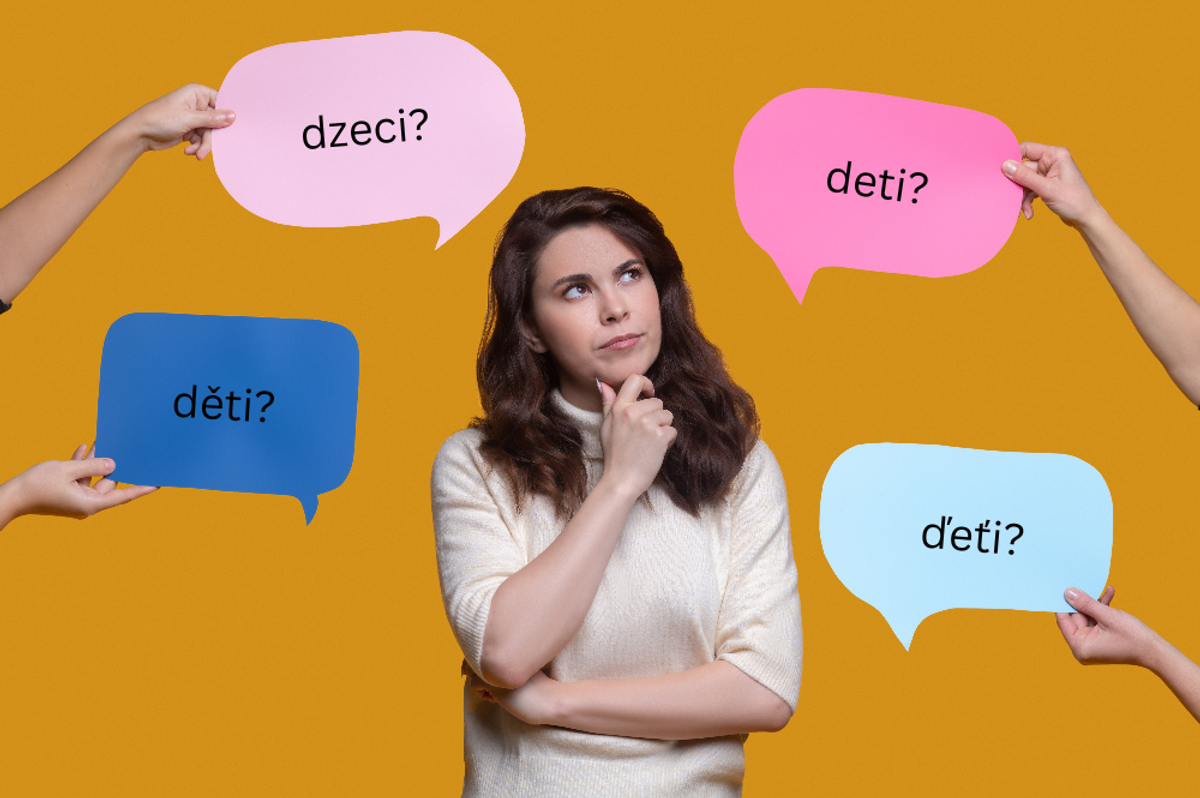Slovakia is a small country, but the variety in its language is great. Indeed, much of the nation's history concerns the struggle to identify, codify, and agree upon a common language to support the claim to a unique identity. For someone trying to learn Slovak, it sometimes seems a wonder the nation ever succeeded.
The main task of that struggle was proving Slovak was more than a Czech dialect. To make this claim, nationalists unified many other smaller dialects. One dialect spoken in the Záhorie district on the border northwest of Bratislava ended up somewhere in between the two languages.
According to the Ľudovít Štúr Institute of Linguistics, there are three major dialects in Slovakia: western, central, and eastern, and these can then be broken up into 28 smaller groups. After this, the number becomes more subjective.
When I asked Slovaks for help identifying the pronunciations and words special to their native dialects, they told me that some variations could even be limited to individual villages.
The western Trnava dialect is one of the most vilified in the country. It is characterised by sounds much harder than those in standard (spisovný) Slovak language. It is said that even Trnava's cats say mnau, with a hard "n" sound, instead of the purring mňau of pure-speaking felines.
This is hard for non-native ears to catch. After living here for months I realised that I was turning subtly soft Slovak words into crunchy, chunky monsters. This was humbling, as I had once accused the language of being a rough mountain range of consonants.
In an example of how local an idiom can be, there is one specific to the Dúbravka (or should I say Dúbrafka?) neighbourhood of the capital in which people tend to use "f" instead of "v", usually when the following letter is a "k", calling pivko (beer) - pifko, plavky (swimming suit) - plafky.
Moving into central Slovakia, words become softer. In proper Slovak, the letters "d", "t", "n", and "l", followed by vowels "i" and "e", are, by rule, softened but not marked by the softening accent mark called mäkčeň, as is normal. Beware of some exceptions, of course. In this part of Slovakia, though, the softening of these four consonants is very emphasised. Slovaks from the west of the country think it sounds ridiculous.
In the Turiec dialect, from the very middle of Slovakia, these same rules apply. And, said one friend from the area, adjectives are given the ending uô, as in peknuô and krásnuô instead of pekný (pretty) and krásny (beautiful). Moreover, the old generation also replaces the "l" at the end of words with a "u". An example is povedau som instead of povedal som (I said).
Young people use the word fest instead of the word veľmi (really/very), as in "ten film bol fest dobrý" ("that film was really great").
In the far east (yes, it is exotic as it sounds), Slovak does not become softer. My regional expert, raised with the Abov dialect (abovské nárečie) around Košice, says that the soft consonants heard in central regions are underused to the point that people from the east have problems spelling proper Slovak words - they never know where the softening marks should go.
People in villages around the country, moreover, use a special village dialect (dedinské nárečie) making the nation's proper speech less lovely sounding (ľubozvučný) and melodious (spevavý), dominated by the sounds "dz" (like in "heads") and "c" (which sounds like "ts"). In one example, infinitives lose their soft "ť" sounds for the "c": robiť (to do) becomes robic. And normal "d"s transform into the "dz" sound: idem (I go) becomes idzem. To combine the two, deti (children) becomes dzeci.
Though I have mostly avoided including dialectical words not found in standard dictionaries, there are many. Even without referring to these, the last example shows how words can be almost completely changed just through pronunciation.
So can Slovaks actually understand each other? When folks from different parts meet and speak their dialects fully, the answer is depends. In response, some Slovaks speak harshly of those who refuse to speak proper Slovak, calling them peasants (sedliaci or sedláci in the western dialect).
On the other hand, most love the special language they were raised with, even if they do not use it every day.
This article was first published by The Slovak Spectator on March 22, 2004. It has been updated to be relevant today.


 (source: zinkevych/Freepik)
(source: zinkevych/Freepik)